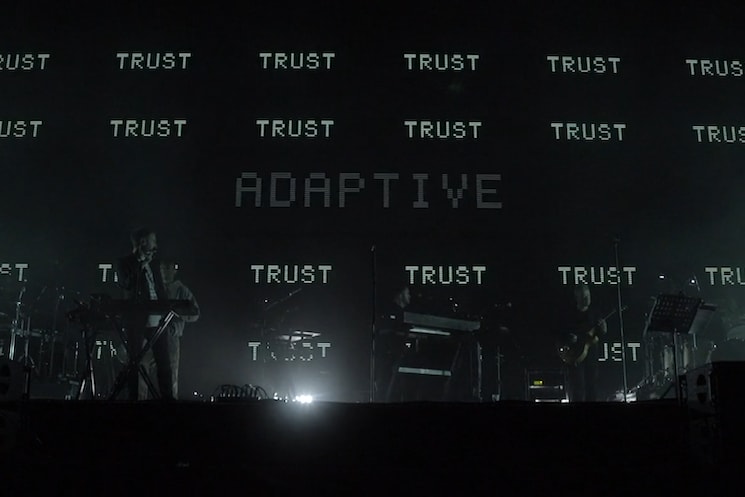After announcing late last year that they would be tracking carbon emissions on tour, Massive Attack have returned with a new commitment to environmental advocacy by sharing a new short film about the live music industry's role in combatting climate change.
With help from Manchester University's Tyndall Centre for Climate Change Research and director Anthony Tombling Jr for Unit 3 Films, Massive Attack's 3D narrates the eight-minute film, which goes in-depth about the way forward for concerts in the age after coronavirus.
"As well as the havoc the pandemic wreaks across our lives, there's also opportunity within that enforced hiatus to reflect and to change," 3D explains in the video. "The challenge for everybody in the creative industries is to use this time to plan and embrace real seismic change, so when we can reassemble, those events don't materially damage the health of the people around them anymore."
Specifically, Tyndall's Carly McLachlan speaks at length about how COVID-19 safety measures around concerts, like drive-in shows, could end up being more harmful in the long run if adopted as standard.
"We need to be careful that we don't reassemble after this period with things like [drive-ins] baked in," she says. "I think it's a really critical moment to make sure that as we rebuild the sector — as it comes out of this period of crisis — that we do that in a way that gives it long-term sustainability."
Watch the film below.
With help from Manchester University's Tyndall Centre for Climate Change Research and director Anthony Tombling Jr for Unit 3 Films, Massive Attack's 3D narrates the eight-minute film, which goes in-depth about the way forward for concerts in the age after coronavirus.
"As well as the havoc the pandemic wreaks across our lives, there's also opportunity within that enforced hiatus to reflect and to change," 3D explains in the video. "The challenge for everybody in the creative industries is to use this time to plan and embrace real seismic change, so when we can reassemble, those events don't materially damage the health of the people around them anymore."
Specifically, Tyndall's Carly McLachlan speaks at length about how COVID-19 safety measures around concerts, like drive-in shows, could end up being more harmful in the long run if adopted as standard.
"We need to be careful that we don't reassemble after this period with things like [drive-ins] baked in," she says. "I think it's a really critical moment to make sure that as we rebuild the sector — as it comes out of this period of crisis — that we do that in a way that gives it long-term sustainability."
Watch the film below.
